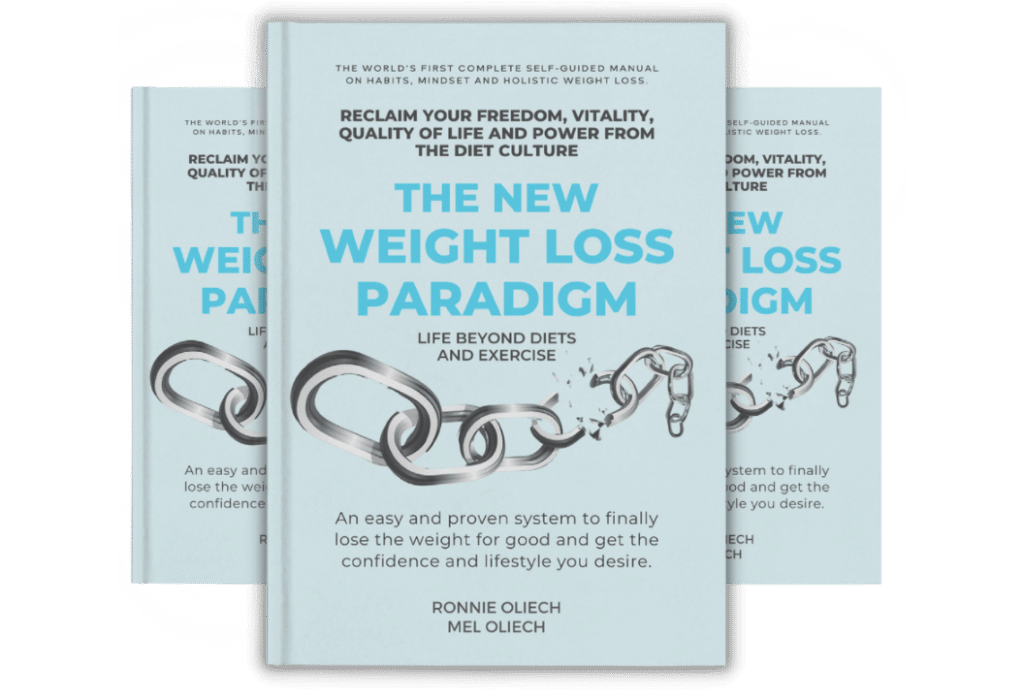It’s 6 weeks until Christmas and Bev is panicking. Her summer clothes in her wardrobe are all feeling tight and some she can’t even get on. She’s determined not to buy another size larger, so she decides to make a really focused effort to eat ‘perfectly’ for the next 6 weeks, so she can lose some weight and fit into her clothes.
Whenever Bev needed to lose weight quickly in the past, she ramped up the exercise and cut out carbs, sugar and snacking in between meals. This approach always seemed to work well for her, so she decides that she’ll do something similar this time. But because she wants to ‘fast-track’ her results, she decides she’ll start the first few days on a juice cleanse as well. She’s seen the ads on TV and some of her friends have used them, so she figures that there’s no harm in giving it a go.
On day 1 of her juice cleanse Bev feels excited. She can’t wait to see how much weight she’s going to lose. She spends the first 3 days drinking vegetable juice and walks for 5km every day. By day 4, when she introduces some food, she’s tired but feels less bloated and even more excited. The cleanse obviously worked.
For the rest of the week, Bev has a meal replacement shake for breakfast, a small salad for lunch, and a light dinner — usually steamed chicken or other protein, with steamed veggies. She notices that she’s really hungry by the time dinner comes around and the amount she has on her plate isn’t enough to fill her up. But she uses all of her willpower and doesn’t give in to her cravings. It’s particularly hard on the weekend when she’s not distracted with work, but she tells herself that hunger is a sign that she’s losing weight, so she’d better not blow it. She continues her walking every day.
At the end of the first week, she weighs herself and is disappointed to notice that she’s only lost 1.5kg. Given how hard she found this week, she felt like she deserved to lose at least 2kg. But she gives herself a pep talk and tells herself that the hardest week is over, and the weight loss will probably catch up next week. She goes off for another walk, and increases her distance by 1km, thinking that more walking will definitely help shift her weight.
Bev continues her diet the second week. She’s decided that she’s going to try to walk 10,000 steps a day by doing 2 walks a day — one before breakfast and one at lunch. She also thinks walking at lunchtime is a good idea, because she’s starting to get very hungry in the afternoons. She figures that if she distracts herself with walking at lunchtime, she can eat her lunch in the afternoon, which will solve her problem of being hungry. Dinner time is her favourite part of the day because she gets to eat more food. However, she is still hungry after her meal. Bev decides that drinking lots of water after dinner would be a better option than eating because water has zero calories. However, Bev doesn’t sleep as well because she has to keep going to the toilet in the middle of the night because of the extra water she’s drinking.
She only lost 1.5kg the second week and she fully expected to lose more than 2kg. She’s getting sick of working so hard for very little gain. She tried on her clothes too and they still felt tight. The weekend was also difficult because she said ‘no’ to going out to dinner with friends, as she didn’t want to ruin her diet. Instead, she sat at home feeling miserable.
By week 3, Bev is finding it really hard to get out of bed early each day. She is tired and cranky. She’s bored with her food and can’t stop thinking about eating chocolate and ice-cream. But she grits her teeth and keeps pushing herself. She keeps walking in the morning, although she’s had to reduce the distance as she’s finding it too tiring, and her knee is starting to ache a little. She keeps up her lunchtime walking because that helps her not to eat. She wonders if she may have injured her knee as it’s always a bit sore in the afternoon when she’s back at her desk. But she decides she’ll keep going with her walks while she can.
In her third week, Bev has a very stressful day at work and ends up yelling at her colleagues. She’s so angry and frustrated she decides she’s going to treat herself to some pasta for dinner, so she stops in at the supermarket on the way home. By the time she gets there, she’s even more stressed after being stuck in traffic. She ends up buying a tub of ice-cream, a block of chocolate, chips and lollies. She also throws in a couple of packets of chocolate biscuits, telling herself that she’ll take them to work tomorrow for the girls, as a way to say ‘sorry’ for being grumpy at them.
As she’s driving home, her hunger pangs become so bad that she doesn’t know how she can last until she gets home to cook, so she heads through the drive-thru for a quick takeaway of burger and fries. She can always cook her pasta another time. As she eats her takeaway, Bev starts to feel better. She feels calmer and happier than she has in weeks. But she realises how hungry she is. She ends up eating all the ice-cream, half the block of chocolate and one packet of biscuits.
She goes to bed feeling sick and disgusted with herself because of her binge. She doesn’t sleep well and decides she won’t get up for her early morning walk. Because of her binge, and her skipping her walk that morning, Bev decides to restrict her food even further for the next few days to make up for it. She eats nothing for breakfast and has a simple green salad for lunch. But by the time she gets home, Bev is famished. She cooks a large amount of pasta for her dinner, and then finishes off the block of chocolate she started the night before. She also opens the packet of chips and eats the second packet of biscuits that she forgot to take into work.
For the next 3 weeks, Bev continues to struggle. She has no motivation or energy to get up for her morning walks and so they fall by the wayside. She also started to feel very run down and under the weather, and has to cut back her lunchtime walks because her knee is too sore to go very far now. While she’s trying to be ‘good’ and not eat junk food, she can’t seem to help herself. She doesn’t understand how she can be on track in the first half of the day but fall off the wagon every night. She’s even stopped weighing herself because she’s scared of what the scales will say.
The week before Christmas, Bev has to go shopping for new clothes. The ones in her wardrobe still don’t fit her and she’s got nothing to wear for summer. She hates every minute of the experience and doesn’t even like the clothes she’s bought. But she can’t find anything nice that will fit her. She has given up on her diet but decides that her New Year’s Resolution will be to get back on track and start a new one. Because surely, it will be easier to start afresh in the New Year, rather than trying to lose weight at a stressful time like Christmas.
The above scenario is the approach that most people take when they want to lose weight. They focus on restricting food and cutting calories and ramping up their exercise in order to create a calorie deficit.
But more often than not, this approach of cutting calories backfires and leaves the dieter feeling worse off than when they started. They struggle with cravings, energy, poor mood, may injure themselves, and then end up giving up altogether until they find a more ‘suitable’ time to focus on their diet.
Why do people focus on cutting calories?
The primary reason people focus on cutting calories is because the diet industry has told us this is the only way to lose weight. For far too long, we’ve been fed the lie that weight loss is simply a matter of burning more calories than you consume. But weight loss is much more complicated than a simple caloric equation.
The truth is that cutting calories is not an effective weight-loss strategy at all. If you’ve been feeling like a failure because you haven’t succeeded in losing weight this way, take heart. It’s not your fault.
Why cutting calories doesn’t work
Start the binge/starve cycle
Everyone can cut their calories for a short period of time and rely on willpower and motivation to see them through. But when your willpower diminishes (and it will), all you’re left with are cravings. This is actually a physiological response to stop you from starving to death.
You see eating is like a clock pendulum that swings from side to side. Cutting calories and restricting food causes the pendulum to swing hard to one side. All of a sudden, you’ve gone from eating a lot of food, to eating a small amount. But just like a clock pendulum, it can’t swing one way without coming back to the other side. When the pendulum swings back, you overeat and end up binging. This explains why Bev ends up bingeing every night. The willpower she had in her first week or so has been depleted, and her body is trying to make up for the calories it needs to function. (Find out why willpower doesn’t work in our blog Weight loss motivation: Why willpower doesn’t work). Bev ends up restricting food even further, to make up for the binge, which only leads to more chaos, as she enters the vicious cycle of restricting food, bingeing, restricting and bingeing. And the more she restricts food, the more out of control her binges become.
Many people fail to understand this and believe that they are either weak or undisciplined when they end up bingeing. Some people actually don’t register the binges because they are focusing on the small amounts of food they eat during the day and don’t realise that eating less causes them to consume more. We refer to this as a weight-loss blind spot. You can read more about them in our blog Well known, little understood weight loss blind spots.
Increased stress
Restricting food also increases your stress levels, which is a disaster for weight loss. In our example above, Bev believes that if she’s ‘perfect’, she’ll be able to lose weight. However, trying to be perfect by following food rules and restrictive behaviours only sabotages your results even further. The truth is, you don’t need to be perfect to lose weight. To understand more about stress and how it impacts your results, read our blogs How stress and weight gain are linked and Why you’re not losing weight despite being perfect.
In the example above, Bev’s stress levels continue to increase the longer she’s on her diet. She’s anxious about going out to eat with friends, she blows up at work, she’s frustrated with a traffic jam, and she ends up using food as a way to manage her stress, which only sabotages her results.
Low energy and mood
In the above example, Bev feels a little tired after her juice cleanses during the first week of her diet, but by the third week, she’s noticing that her energy is seriously lagging, and her mood is low. This is because she’s not eating enough food to fuel her body properly. It’s like expecting your car to keep going even when the fuel tank is empty — it just won’t happen. This low mood means she doesn’t deal with a stressful day very well and ends up yelling at her workmates. And as a way to soothe her feelings, she turns to junk food and fast food.
Compromised nutrition and immune system
In her quest to lose weight, Bev has cut out certain food groups and has limited the amounts of other foods that she eats. While she may be able to cope with this for a few days, it’s not a plan that is sustainable or healthy for the long-term. In order for our body to work efficiently, and burn fat, we need to feed it optimal nutrition. This is not found in salads and steamed chicken. It’s found in eating a wide variety of foods rich in colour, texture and taste. The reason Bev is feeling run down and under the weather is because she has been compromising her immune system by compromising her nutrition. To find out the best approach to nutrition, read our blog The 14 best foods to lose weight.
Poor training and increased chance of injury
Cutting calories and restricting food will lead to poor training and an increased chance of injury and burnout. The person who gets the best weight loss results isn’t the one who trains the most for short periods of time, or trains the hardest — it’s the person who can train consistently throughout the year. And the key to consistent training is recovery.
In order to effectively recover from your training session, you need to feed your body proper food. To find out what you should eat after training, be sure to read our blog What are the best workout meals? You also need to give your body time to rest and recover. Failure to do this will mean that you won’t get the most out of your sessions, and you’ll be more likely to burn out or get injured.
In the example above, Bev has reduced her calorie intake so much that she doesn’t have enough energy to recover from her long walks and keep up with her walking. And because she did too much too quickly and didn’t let her body rest and recover properly, she ended up sustaining a knee injury, which prevented her from walking at all. You can read more about this in our blog How to prevent sports injuries and burnout.
Compromised metabolism
Muscle mass is the biggest influence on our metabolism, yet many people are unaware of this. In fact, a lot of women are afraid to build muscle because they believe it will make them look bulky, so they focus on performing cardio exercise. But this doesn’t improve your metabolism.
In the example above, Bev believes that she can change her body shape and her weight by walking. While walking is a great exercise, it won’t improve her metabolism, because she’s not focusing on building muscle mass.
Restricting food is one of the worst things you can do when it comes to weight loss, particularly if you have low muscle mass. When you create a large energy deficit (which is what dieting does), you send your body into starvation mode. As a result, your metabolism slows down, making it even harder for you to lose or maintain your weight. If your muscle mass is low and you start cutting back your calories, you’ll only compromise your metabolism even further. And when you come off the diet (which you will) you go back to your old eating habits but this time you have a slower metabolism which makes it even harder to lose weight.
In the example above, Bev is seriously compromising her muscle mass by restricting food and focusing on the wrong kind of exercise. By the time she starts her next diet, her metabolism will be even slower than it is now, which will make it even harder for her to lose weight next time.
You can read more about metabolism and its role in weight loss in our blog What is metabolism and how can you increase it.
Cutting calories doesn’t address habits
Quick-fixes, fad diets and cutting calories are not solutions to your weight problem because they don’t address the reasons why you became overweight in the first place. It’s like continuing to take painkillers for persistent headaches, instead of addressing the reasons why you’re getting headaches.
The real solution to weight loss is to focus on your habits because weight loss isn’t about what you do, it’s why you do it. In the example with Bev, addressing the following habits will help her achieve better long-term results:
- The diet mindset and why she believes restricting food is the answer
- Believing she needs to be perfect in order to lose weight
- Using exercise and food deprivation as her primary tool to lose weight
- Believing that more is better when it comes to exercise
- Managing stress
- Learning not to be afraid of food and to eat when she’s hungry
- Learning how to eat out with friends instead of limiting her social life
- Letting go of the notion of willpower and motivation
- Thinking that there is a ‘better time’ to lose weight
- Looking at the causes of her binge eating and emotional eating
- Expecting that she can lose a large amount of weight in a short amount of time.
If Bev addressed these habits, she would no longer struggle with her weight, and she wouldn’t need to go on crash diets to lose weight in a hurry. You can read more about habits in our blog Why weight loss is never about food or exercise.
Not sustainable
Finally, as we have seen in the case of Bev, cutting calories and starving yourself is not sustainable long-term. While Bev can rely on willpower for a couple of weeks, that’s as far as she gets. In the end, she becomes injured, tired, cranky, can no longer refrain from bingeing and feels terrible about herself. So she comes off the diet and makes a plan to go on another one, ‘when the time is right’. And of course, we know that when she does, she’ll start the same cycle all over again. This explains why so many people who work hard at losing weight never succeed in the long term.
What should you do?
Dieting, cutting calories and restricting food is not a successful strategy to lose weight, no matter how the dieting industry packages it up and sells it to you. In reality, dieting is a shortcut to misery. You can find out why in our blog How diets steal your health and happiness.
To lose weight, you need to take an entirely different approach and do the opposite of what you’ve always done. We talk about this in a lot more detail in our blog Nothing changes if nothing changes: How to lose weight for good, so be sure to read this one.
Instead of going on a crash diet after a crash diet, Bev needs to change everything she’s always done. This means:
- Slowly start consuming more calories instead of cutting them back.
- Learning how to eat from all food groups instead of cutting them out
- Exercising for just 3% of her week instead of exercising for several hours per day
- Learning how to stop restricting food, instead of trying to control her binges
- Learning how to feel worthy regardless of what weight she is, instead of feeling unworthy
- Learning that losing weight is a process and can’t be solved with a quick-fix
- Managing her emotions instead of using food to soothe her feelings
- Developing stress management skills, instead of turning to food
- Working towards being consistent with healthy eating instead of trying to eat perfectly
- Acknowledging and celebrating her small achievements instead of looking for big results
- Working with a coach and making herself accountable instead of trying to do it herself
- Setting up her environment for success instead of relying on willpower
- Learning different ways to measure your success instead of using scales to measure her progress
- Working on her habits instead of focusing on diet and exercise to lose weight.
The secret to long-term weight loss isn’t found in controlling your calorie intake. It’s found in changing your habits and mindset and developing the skills and strategies you need in order to manage any situation on any given day.
If you’re ready to take a different approach and ditch the diets and deprivation, we’re ready and waiting for you.


















